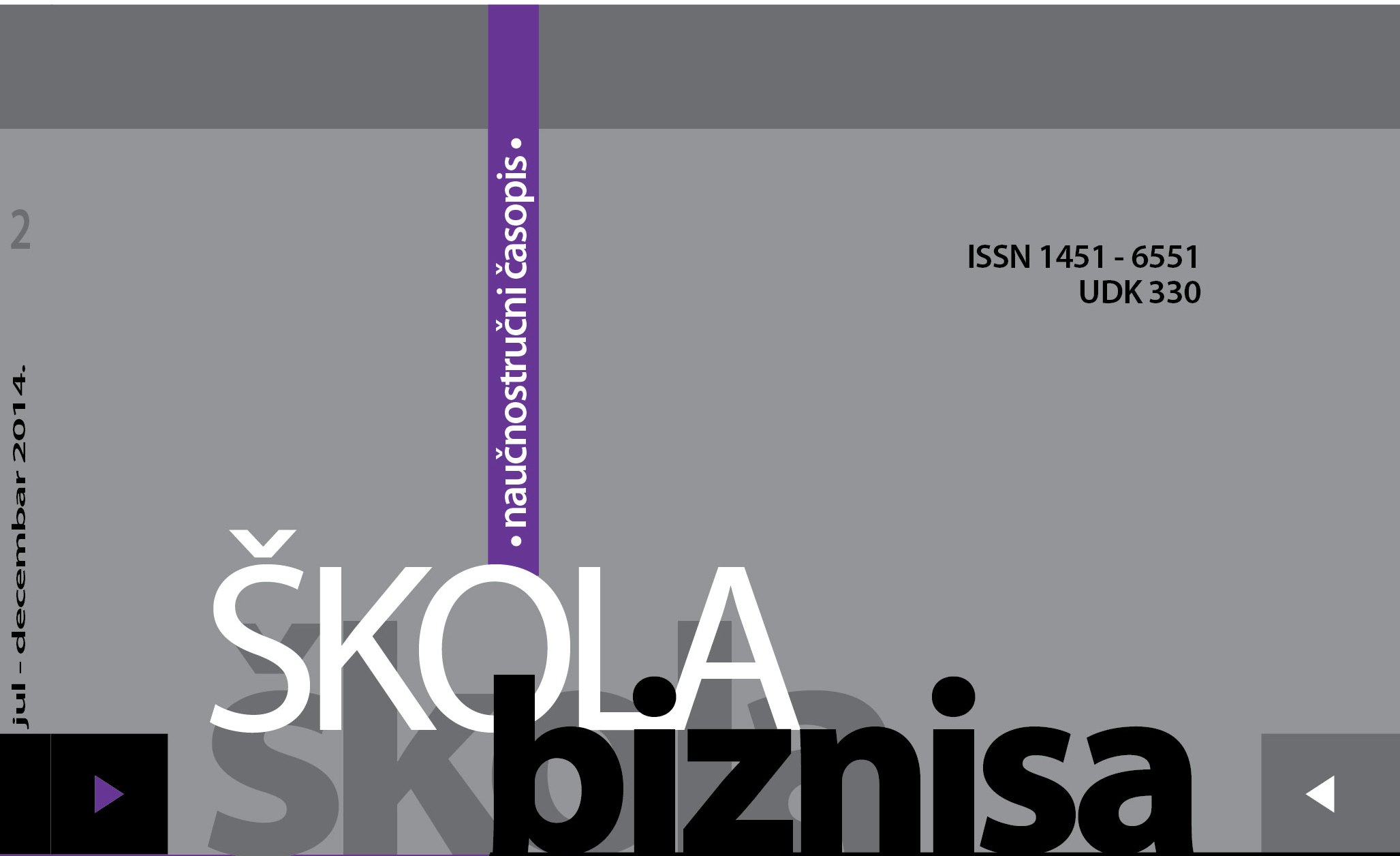DEMOCRACY AND SHAREHOLDER’S PARTICIPATION
Abstract
Democracy and participation of shareholders or the demand for their active participation in the meetings of the Assemblyhas increasingly gained in importance in modern conditions. This is because, negative trends of passivation, the limitations of democratic potential of shareholders and shareholders’ rights abuse by the management body, especially in the work control and compensation policy of shareholders, have been observed in a detailed analysis of the application and results of the Shareholder Rights Directive. The passivity of shareholders, as one of the most striking features of their position in the joint stock company today, is the biggest problem and threat to democratic processes within the company. If we bear in mind that the most common definition of shareholder democracy is “ability of shareholders to influence the management of the company", we can notice a clear picture of the seriousness and importance of the lack of shareholder participation. This is the reason why the author of this paper gradually examines the causes and consequences of the passivity of shareholders, the proposed changes in this context in the Law of the European Union and the practical implications of such solutions in practice. In addition, the author examines contemporary forms and conditions for shareholder democracy and the legal framework in the European Union and the Republic of Serbia. In this way, we analyze the situation in this area and point out shortcomings of certain solutions, as well as the implications they cause in practice. The main thesis from which starts the scientific work and which will be gradually proven through theoretical and practical analysis is that the wider social processes directly reflect on the state of the joint-stock companies, or the state of corporate governance. This means that the negative trends of modern democracy (in the constitutional sense) are almost mirrored in economic capital (EC) and our attempt in this paper is to prove that, through the analysis of existing solutions. On the other hand, some solutions of shareholder democracy are applicable in terms of contemporary socio-political relations and can produce a certain positive impact on the democratic processes.
References
Čulinović-Herc, E., & Hasić, T. (2011). Sudjelovanje dioničara u radu glavne skupštine dioničkog društva prema noveli Zakona o trgovačkim društvima. Zbornik Pravnog fakulteta Sveučilišta u Rijeci, 32 (1), 31–71.
Directive 2007/36/EC of the European Parliament and of the Council of 11 july 2007 on the exercise of certain rights of shareholders in listed companies. (2007).
Đorđević, S. (2012). Značaj i uloga mehanizama korporativnog upravljanja u podizanju nivoa efikasnosti menadžmenta. Škola biznisa, 1, 51–62.
Fairfax, L. (2008). Making the Corporation Safe for Shareholder Democracy. Ohio St. L. J., 69, 53.
Lovre, I. (2014). Uloga i značaj računovodstva i revizije u korporativnom upravljanju. Škola biznisa, 1, 69-79. doi:10.5937/skolbiz1 - 5421.
Proposal for a Directive of the European Parliament and of the Council amending Directive 2007/36/EC as regards the encouragement of long-term shareholder engagement and Directive 2013/34/EU as regards certain elements of the corporate governance statement (2014).
Radović, V. (2008). Kumulativno glasanje za izbor članova uprave – I deo. Anali Pravnog fakulteta, 56 (1), 150–164.
Vasiljević, M. (2011). Vodič za primenu Zakona o privrednim društvima. Beograd: Intermex.
Zakon o privrednim društvima. Službeni glasnik RS, (2011). br. 36/2011, 99/2011 i 83/2014.
- Authors retain copyright and grant the journal right of first publication with the work simultaneously licensed under a Creative Commons Attribution License that allows others to share the work with an acknowledgement of the work's authorship and initial publication in this journal.
- Authors are able to enter into separate, additional contractual arrangements for the non-exclusive distribution of the journal's published version of the work (e.g., post it to an institutional repository or publish it in a book), with an acknowledgement of its initial publication in this journal.
- Authors are permitted and encouraged to post their work online (e.g., in institutional repositories or on their website) prior to and during the submission process, as it can lead to productive exchanges, as well as earlier and greater citation of published work (See The Effect of Open Access).

